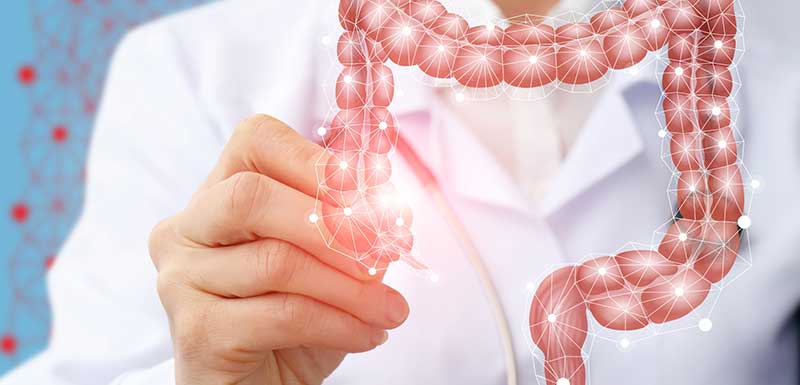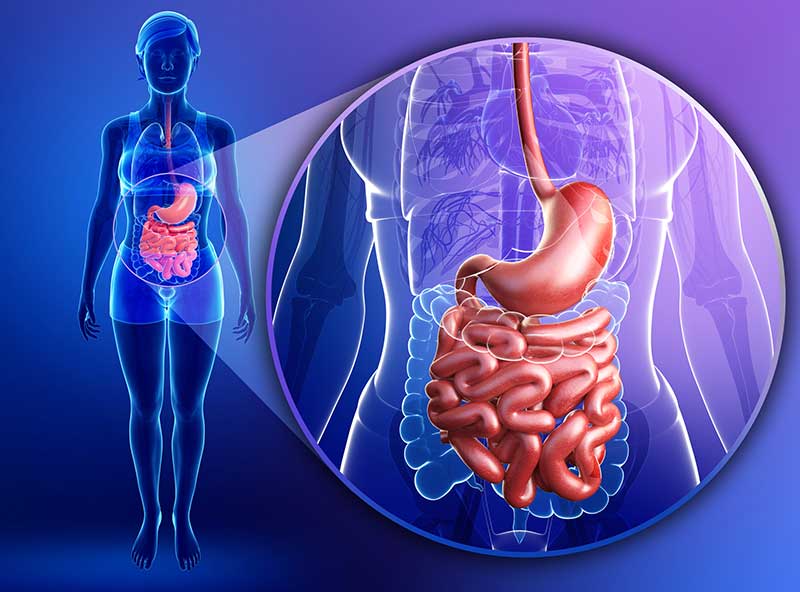
Gastrointestinal (GI) bleeding is itself a symptom and not a condition.
When bleeding within the GI tract is experienced, it’s a sign that something is affecting the structures that make up the gastrointestinal tract. GI bleeding is sometimes mild, but it can also be severe and potentially life-threatening.
For this reason, any evidence of gastrointestinal bleeding should be reason enough to see a GI doctor.
What Causes Gastrointestinal Bleeding?
In the upper GI tract, GI bleeding may be due to a peptic ulcer, which is the most common cause of bleeding affecting the upper gastrointestinal tract. Bleeding in this area is sometimes caused by a tear in the tube linking the stomach and throat (esophagus), enlarged veins in the esophagus, or esophageal inflammation.
Bleeding is sometimes triggered in the lower GI tract if small, digestive system pouches become infected or inflamed (diverticular disease). Tumors, colon polyps, hemorrhoids, and anal fissures can also be reasons why you may be experiencing lower GI bleeding. Also, rectal bleeding could be the result of inflamed rectal lining (proctitis).


What Are Common GI Bleeding Symptoms?
GI bleeding symptoms may be as obvious as bleeding from either end of the GI tract. Other times, signs of a problem are less obvious. Clear signs of a problem could include dark or tarry stool, vomiting blood, and rectal bleeding. GI bleeding may also contribute to:
- Chest or abdominal pain
- Lightheadedness or fainting
- Breathing difficulties
What Are Shock Symptoms?
It’s important to seek medical treatment ASAP if you have signs suggesting shock. This is what can happen if GI bleeding is sudden and progressing rapidly. Should this happen, you may notice a significant drop in blood pressure, an inability to urinate or difficulty even producing a small amount of urine, and a rapid pulse. Unconsciousness can also occur.
How Is a Diagnosis Made?
Because there are many possible sources of GI bleeding, a GI doctor typically performs an assortment of tests. The specific tests done will be based on your symptoms and medical history and results from an initial exam. Blood and stool tests are often necessary. Image-related tests may involve an upper endoscopy performed with a special lighted tube and a camera, a similar procedure called a flexible sigmoidoscopy, and a colonoscopy. Parts of the GI tract not accessible with a standard endoscopy may be evaluated with a balloon-assisted enteroscopy.
What Are Treatment Options?
In some instances, GI bleeding goes away on its own. Other times, medication is sometimes necessary to control the bleeding. A proton pump inhibitor (PPI) might be used to minimize stomach acid production that may be contributing to bleeding in the upper GI tract. Additional procedures or treatments may be necessary — e.g., hemorrhoid repair surgery — if there are underlying issues causing the bleeding. If blood loss is severe, a transfusion may be needed.
Gastrointestinal bleeding isn’t always preventable. However, you may be less likely to need to see a GI doctor for this issue if you minimize your use of non-steroidal anti-inflammatory drugs since a common side effect of long-term NSAID use is GI bleeding. Gastroesophageal reflux disease (GERD) may also lead to GI bleeding, so managing this condition could prevent a bleeding issues from developing, as could limiting your consumption of alcohol and avoiding the use of tobacco products.


